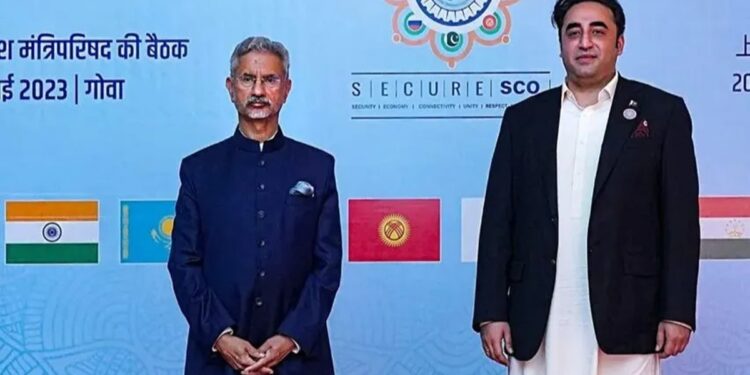Former Foreign Minister of Pakistan and Pakistan People’s Party Chairman Bilawal Bhutto Zardari called for bilateral talks with India amid the ongoing Shanghai Cooperation Organization (SCO) meeting, despite External Affairs Minister S Jaishankar rejecting any such possibility.
The Bilawal Bhutto Zardari said that both the countries should hold bilateral talks on the sidelines of the 23rd Meeting of the Council of Heads of Government of the Member States of the Shanghai Cooperation Organization (SCO). Butto said, ‘Why be so rigid, both countries must think about having a bilateral talk on the sidelines of the Shanghai Commission Organisation (SCO) Summit. A conversation is necessary, whether today or tomorrow. Even if it is not in the context of the SCO, both countries have to resume bilateral talks sooner or later’.
EAM S Jaishankar had already refused any chances of the bilateral talks during the SCO meet. Meanwhile, Jaishankar arrived in Pakistan to attend the 23rd Meeting of the Council of Heads of Government of the Shanghai Cooperation Organisation on Tuesday. ‘Both the countries have their opinions on differences but why should we forget that Pakistan and India are the two most-stressed countries due to climate change’, said the former Pakistan Foreign Minister. Bilawal Bhutto Zardari said, ‘Terrorism is also a reality, whether India blame us and we blame RAW (India’s intelligence agency), but the issue exists, so if we engage, we will somehow reach a common point and save precious Indian and Pakistani lives’.
Zardari further added that the future of both the countries will not pardon us if we don’t engage on issues like climate change. The two-day Shanghai Cooperation Organization (SCO) Summit 2024 started in Islamabad, capital city of Pakistan, on October 15. The summit’s theme, ‘Strengthening Multilateral Dialogue; Striving towards a Sustainable Peace and Prosperity’, reflects a focus on collaboration and progress. The SCO member countries will be represented by the prime ministers of China, Russia, Belarus, Kazakhstan, Kyrgyzstan, Tajikistan and Uzbekistan as well as the vice president of Iran and the external affairs minister of India.
Key agenda includes counter-terrorism efforts and regional security, strengthening connectivity networks for trade and investment, encouraging economic cooperation and addressing climate change concerns.

















Comments